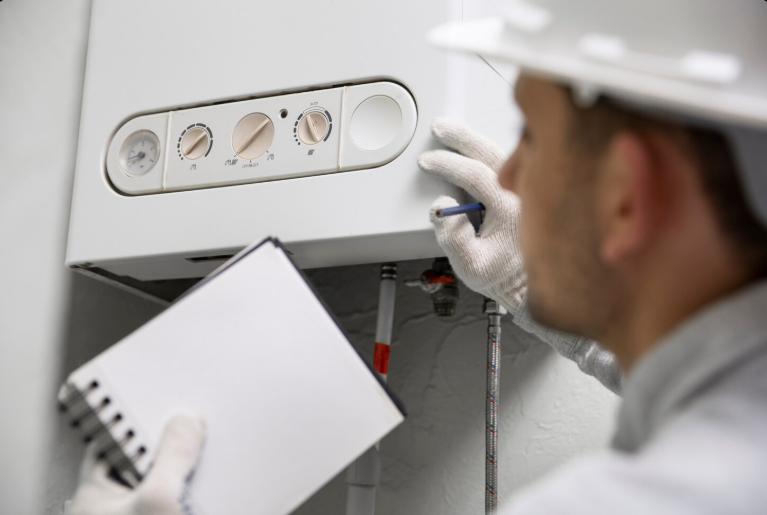The Complete Homeowner’s Guide to Boiler Maintenance

Canadian winters put heavy demand on home heating systems. Your boiler works tirelessly to keep your home warm, but without proper care, efficiency drops and costly repairs become inevitable. A simple maintenance plan, combining homeowner checks with professional service, helps your boiler run safely, prevents breakdowns, and extends its lifespan.
Stay on Schedule with Annual Boiler Servicing
An annual inspection is the foundation of reliable boiler care. Certified technicians will:
- Inspect for leaks, corrosion, and blockages
- Test gas pressure, ignition, and safety controls
- Flush and clean components to restore efficiency
- Verify radiator performance and water circulation
Booking a yearly boiler maintenance service keeps warranties valid and ensures small issues don’t escalate into emergency breakdowns.
Need peace of mind before winter? Schedule your professional boiler tune-up today.
Bleed Radiators for Even Heating
Uneven heat or cold spots in radiators usually mean trapped air is blocking circulation. Bleeding radiators at the start of the heating season ensures consistent comfort throughout your home.
If radiators still won’t heat evenly after bleeding, it may point to circulation issues. In that case, a professional boiler repair is the safest next step. Homeowners often notice this problem alongside common concerns like why radiators stay cold when the boiler is on, which can highlight underlying system issues.
Monitor Boiler Pressure
Your boiler’s manual shows the recommended range, but most residential systems run best around 1–2 bars. If pressure continues to drift outside that range, consider an inspection or even upgrading to a new boiler system. Check your system’s pressure gauge regularly.
- Low pressure reduces efficiency and risks system shutdown
- High pressure strains seals and increases leak risk
Watch for Warning Signs
Strange noises, rising energy bills, or visible leaks often indicate underlying problems that should not be ignored. Spotting these early can save you from costly repairs or even a full system replacement.
Common Noises and What They Mean
- Gurgling or whistling: Often caused by trapped air or limescale buildup inside the heat exchanger. This reduces efficiency and can eventually damage the boiler if untreated. Bleeding radiators or scheduling a system flush can help resolve this.
- Banging or knocking: Usually linked to pump problems, pressure fluctuations, or kettling (a condition where scale restricts water flow, causing it to overheat). If the banging is frequent, it’s time for a professional boiler repair.
- Clicking or humming: While some humming is normal, persistent electrical clicking or loud humming could point to faulty components such as the fan, thermostat, or control board.
Leaks and Corrosion
Even a small leak should be treated as urgent. Water dripping around pipe joints or valves often indicates worn seals, corroded parts, or failing pressure relief valves. Left unchecked, leaks can damage flooring, create mold, and force a premature boiler replacement. In many cases, addressing leaks early costs far less than repairing water damage later.
Performance Issues
If your home feels colder than usual, radiators take longer to heat, or your boiler keeps cycling on and off, the system may be struggling with pressure, circulation, or component failure. These issues rarely resolve on their own and usually require a trained technician.
Rising Energy Bills
An unexpected jump in your utility bill may mean your boiler is working harder than it should. This often happens when limescale, sediment, or poor circulation forces the system to burn more fuel to reach the same temperature. In regions with mineral-heavy water, hard water damage to boilers is one of the leading causes of reduced efficiency.
Smells or Unusual Odors
A metallic, burning, or sulfur-like smell is a major red flag. This can signal overheating parts, gas leaks, or combustion issues, problems that should only be handled by a licensed professional.
Keep the Area Around Your Boiler Clear
Just like a furnace, your boiler needs space to “breathe.” Keep at least 60 cm (24 in.) around the unit clear of boxes, cleaning supplies, or stored items. Make sure ventilation grilles remain unobstructed, and check that the condensate pipe is free of blockages, especially during freezing conditions.
When to Call a Professional
While some tasks (like radiator bleeding) are safe DIY steps, complex issues should always be left to a licensed technician. Call for service if you notice:
- Frequent loss of pressure
- Radiators not heating even after bleeding
- Persistent leaks or dripping
- Unusual noises that don’t go away
For reliable boiler repairs near you or routine boiler maintenance, HVAC Near Me is here to help. Consistent maintenance is the key to reliable, efficient heating. With yearly servicing, basic homeowner checks, and timely boiler repair when needed, you’ll protect your investment and avoid costly mid-winter breakdowns.
Whether you’re scheduling preventive boiler maintenance or considering a new boiler installation, HVAC Near Me delivers trusted service you can count on.
